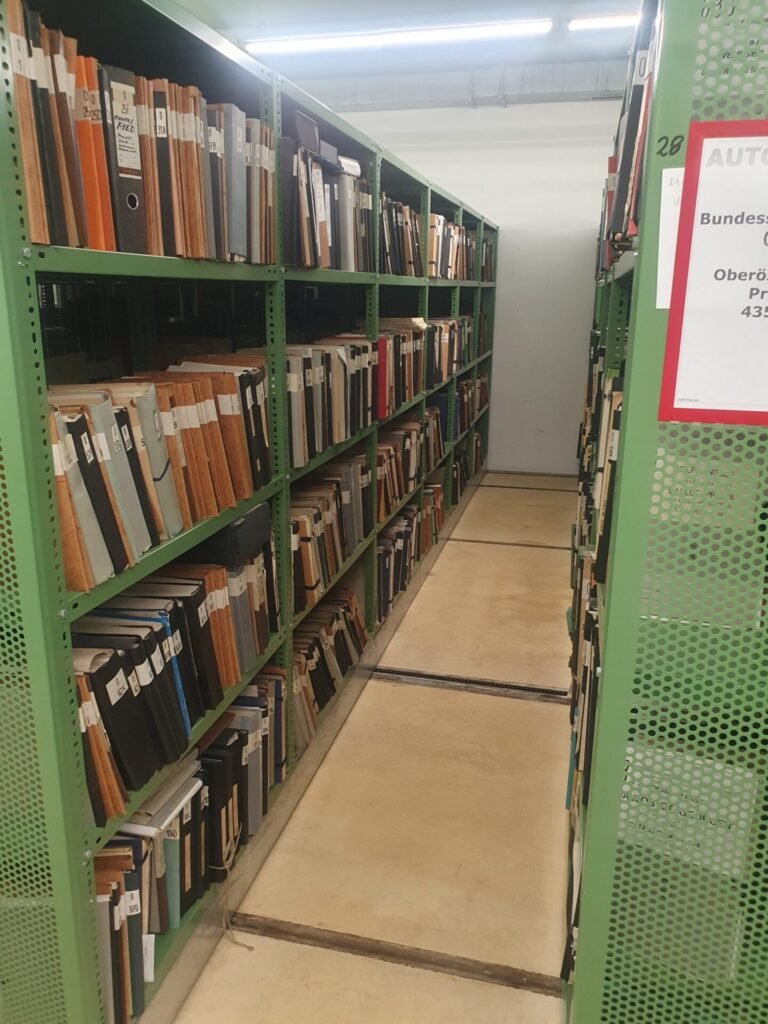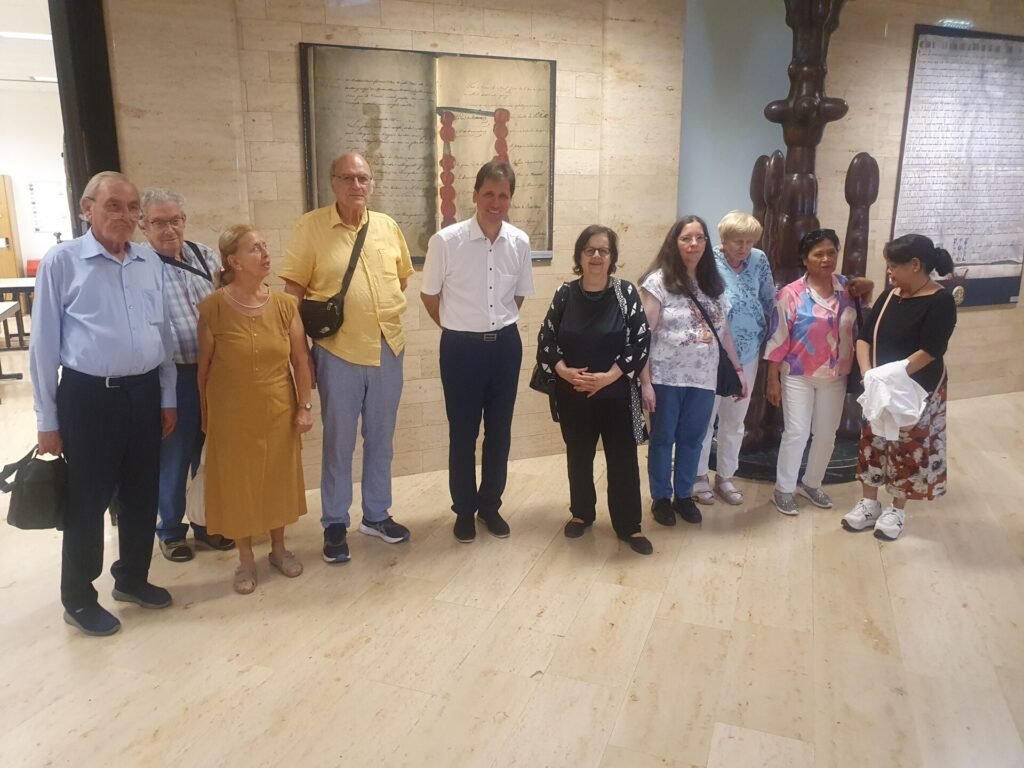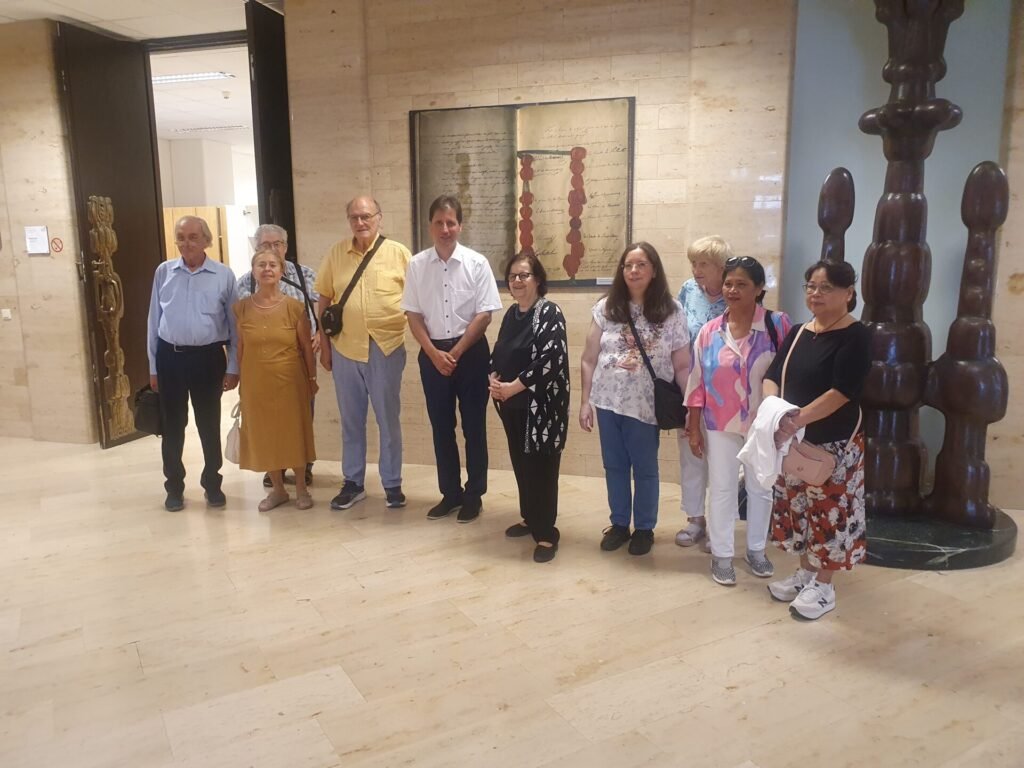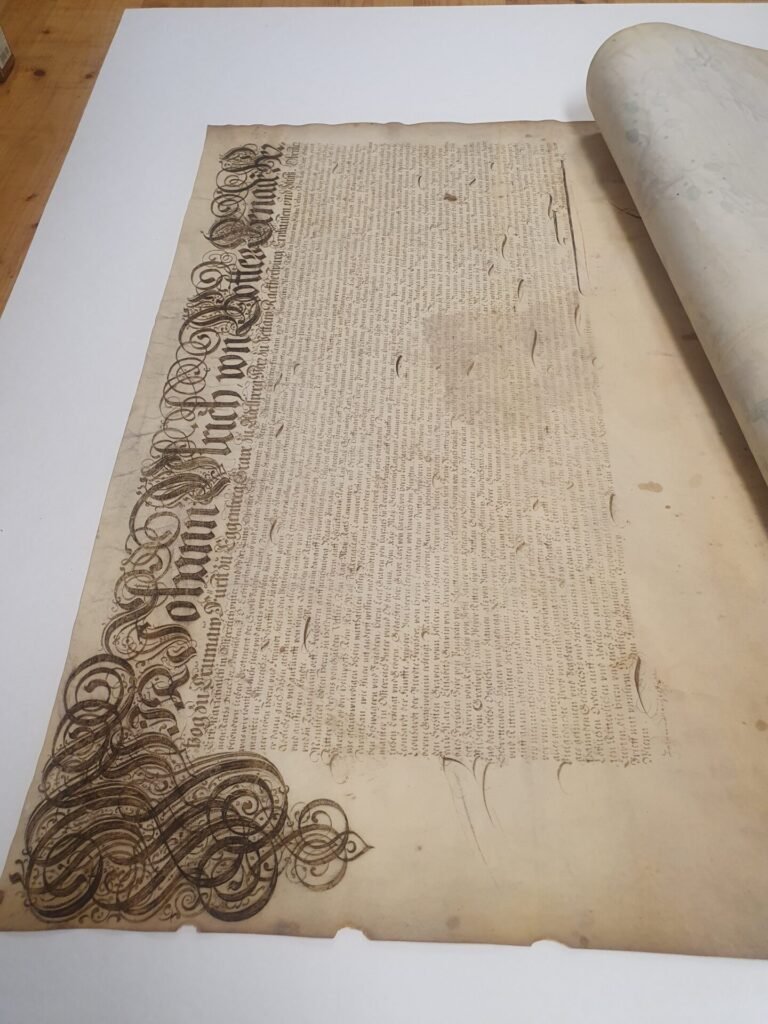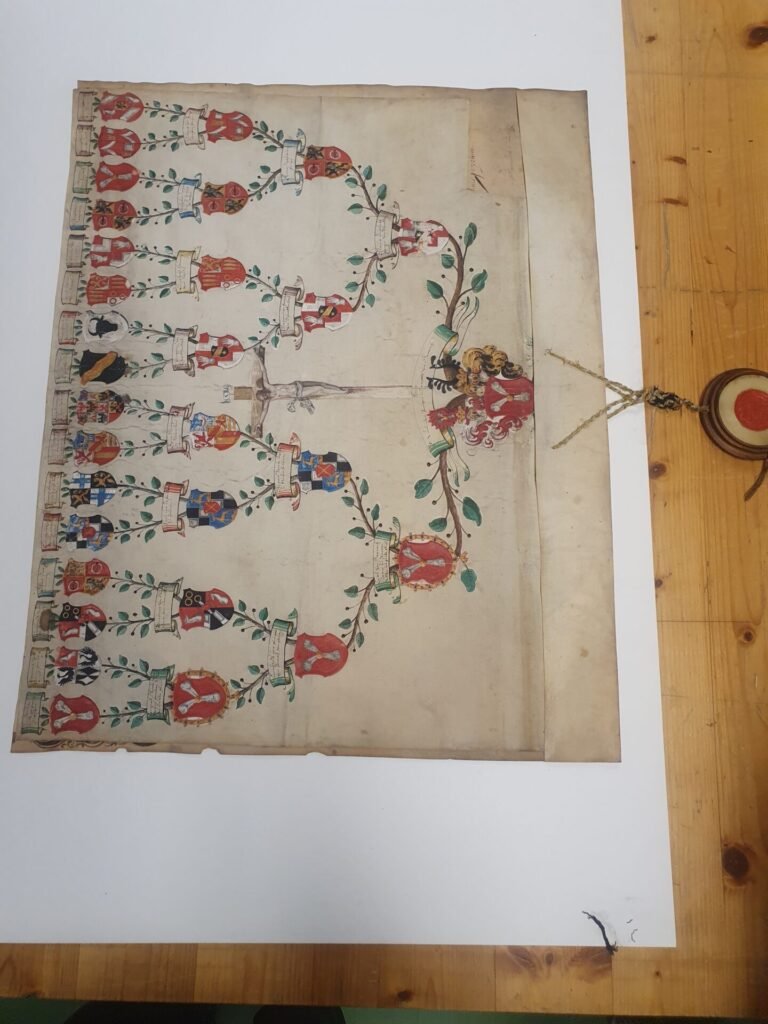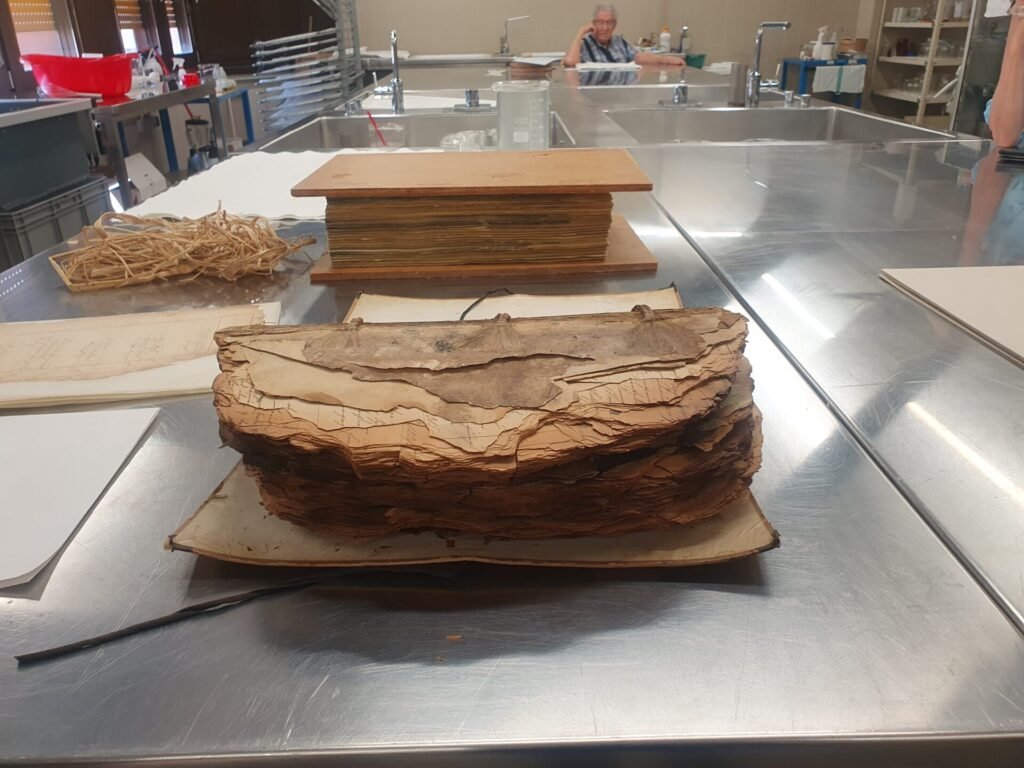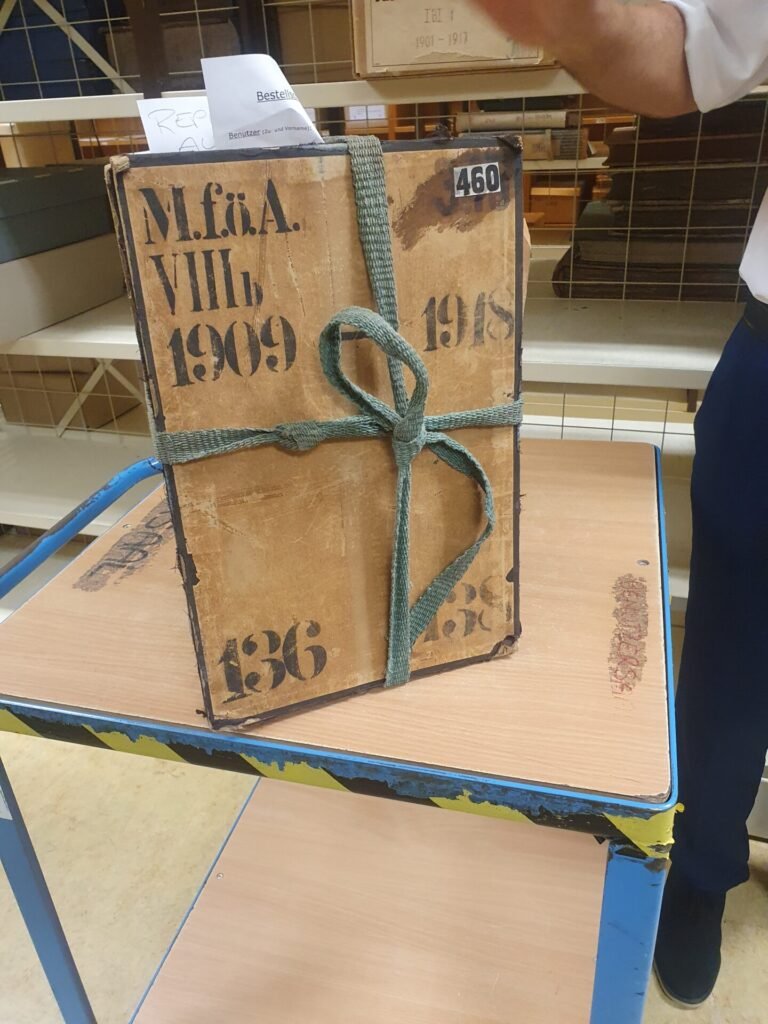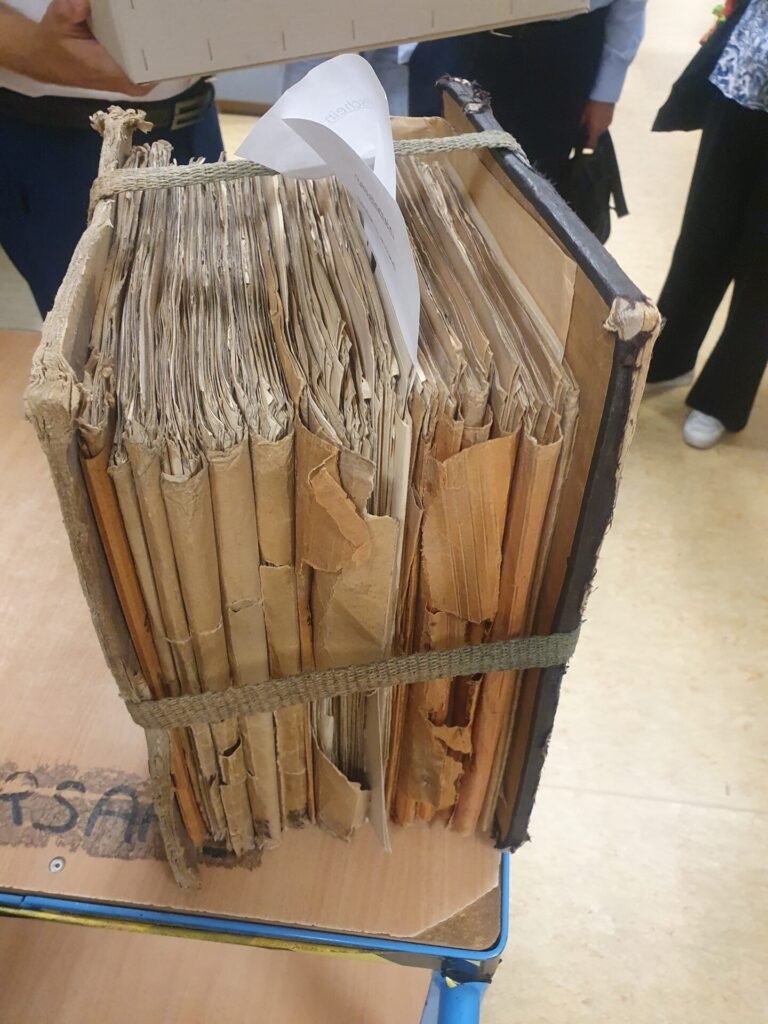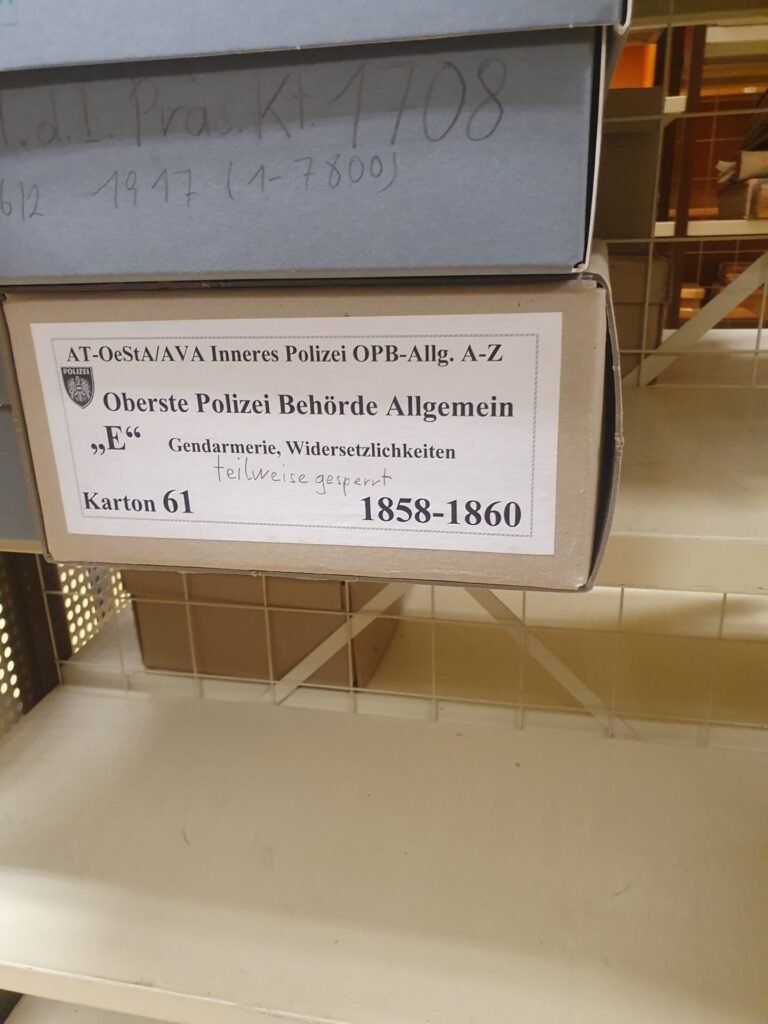A Guided Tour of the Restoration Department
On August 28, 2025, Mr. Berthold Konrath led an insightful guided tour of the Restoration Department at the Austrian State Archives, an event organized by Ms. Mag.a Sashka Yhurkov. This tour attracted a group of 15 attendees, all eager to learn about the vital work undertaken in the department. Renowned for its excellence, the Restoration Department serves not only as a center for archival preservation but also as a premier training facility for aspiring conservators in the field.
During the tour, participants were introduced to the comprehensive structure of the department, which is dedicated to safeguarding the materials that chronicle Austria’s history. The staff demonstrated various restoration processes essential for the conservation of paper documents, which are particularly susceptible to deterioration over time. This includes not only standard practices but also cutting-edge techniques that ensure the longevity of these invaluable assets.
One of the key aspects highlighted was the restoration of seals and bound materials. The department employs a variety of methods tailored to the specific needs of each document type, ensuring that the integrity of the materials is preserved while also enhancing their aesthetic appeal. The procedures encompass cleaning, mending, and often reversible alterations that enable the items to be displayed safely.
Additionally, Mr. Alexander Aichinger discussed the innovative strategies implemented to combat mold infestations, an ongoing threat to archival materials. The department collaborates closely with a specialized mycological laboratory that assists in developing preventative measures and effective treatments. This collaborative effort emphasizes the department’s commitment to not only restoring artifacts but also protecting them from future damage. Such initiatives reflect the department’s dedication to preserving the cultural heritage of Austria for future generations.
The Role of the Austrian State Archives in National Heritage
The Austrian State Archives plays a pivotal role in the preservation and administration of Austria’s national heritage. Under the leadership of Mr. Helmut Wehnout, the archives serve as the principal repository for a vast collection of archival documents, essential for understanding the nation’s historical narrative. One of the core responsibilities of the Austrian State Archives is the systematic acquisition of archival materials, which includes documents from government bodies, private collections, and cultural institutions. This process helps to safeguard critical records that reflect the social, political, and cultural history of Austria.
In addition to acquiring materials, the archives are tasked with the preservation of these documents, ensuring they remain intact for future generations. This responsibility is defined by the Federal Archives Act, which mandates the protection and maintenance of cultural heritage artifacts. The Austrian State Archives employs various conservation techniques and methods to ensure that the documents are not only stored safely but also kept in a condition suitable for research and public access.
Accessibility is a fundamental aspect of the Austrian State Archives’ mission. While the archives strive to make their materials available to researchers, scholars, and the general public, certain restrictions may apply to specific documents due to privacy concerns or national security implications. The careful balance between accessibility and the protection of sensitive information is crucial, as it aligns with broader objectives of responsible stewardship of archival materials.
Moreover, the Austrian State Archives actively engages with the public through exhibitions, educational programs, and other initiatives aimed at fostering a deeper understanding of Austria’s rich heritage. By fulfilling its responsibilities, the archive not only preserves vital historical records but also contributes to the cultural fabric of the nation, ensuring that the history of Austria remains vibrant and accessible for future exploration.
Historical Evolution of Archiving in Austria
The history of archiving in Austria is deeply intertwined with the sociopolitical landscape of the region. The process can be traced back to 1502, when Archduke Maximilian I initiated the organization of state documents. This marked a pivotal moment, as it laid the groundwork for systematic record-keeping, setting a precedent for future generations regarding the importance of preserving historical documents. Maximilian’s directives aimed to enhance administrative efficiency and ensure that essential records were safeguarded for future reference.
Throughout the subsequent centuries, the archiving framework evolved significantly. In 1749, Empress Maria Theresa took noteworthy steps to formalize and centralize documentation by establishing the Austrian State Archives. This institution reflected a growing recognition of the value of historical records, transitioning from scattered collections of documents to a centralized system designed for effective preservation and accessibility. The founding document of the Austrian State Archives remains a crucial artifact, representing a commitment to the organized conservation of Austria’s collective memory.
The 19th century saw further advancements, particularly with the advent of modern archival practices. The establishment of specific archival laws and regulations during this period enhanced the integrity and structure of document preservation. The development of these practices was vital for improving accessibility and ensuring the protection of heritage, allowing scholars and the public to engage more fully with historical materials. The 20th century brought additional transformation, including the incorporation of technology into archiving processes, further optimizing the management of records.
A significant milestone occurred in 1983 with the founding of the Archive of the Republic, emphasizing the state’s determined effort to uphold transparency and historical accountability. This evolution reflects a broader understanding of the importance of archiving not merely as a bureaucratic function but as an essential aspect of preserving national identity and cultural heritage. The progression from early document collections to the sophisticated systems in place today underscores the critical role that archiving has played in Austria’s historical narrative.
Modern Challenges and the Future of Archival Preservation
The Austrian State Archives is currently navigating a complex landscape of challenges related to the management and preservation of electronic records. As technology evolves, the need for effective digital archiving has become increasingly paramount. This has prompted the institution to innovate its archival practices, ensuring that vital historical records remain accessible for future generations. One significant advancement in this area was the establishment of the Digital Archive of Austria in 2012, which signaled a commitment to digitizing and preserving historical materials in a digital format.
The scope of the general administrative archives has expanded in response to the growing volume of electronic documents. Modern governmental operations generate an unprecedented amount of data, which necessitates careful consideration of how to maintain the integrity of digital records while making them readily available to the public. This problem is not unique to Austria; it reflects a global trend where archives strive to keep pace with technological advancements while upholding traditional preservation standards.
Historical events, such as the devastating Palace of Justice fire in 1927, underline the importance of robust preservation practices. This incident not only exemplifies the vulnerabilities faced by archival holdings but also highlights the proactive measures now being taken to restore and safeguard these records. Ongoing restoration efforts are critical for ensuring that the remnants of history are maintained despite past disasters or current challenges.
As the Austrian State Archives looks toward the future, it is focused on enhancing public access while preserving the authenticity and reliability of its collections. By refining digital strategies and embracing innovative practices, the institution aims to secure its historical legacy in an ever-changing digital environment. Addressing these modern challenges is essential for the successful preservation of Austria’s rich archival heritage. In conclusion, the ongoing evolution of archival practices is key to safeguarding the past and enriching the future.
